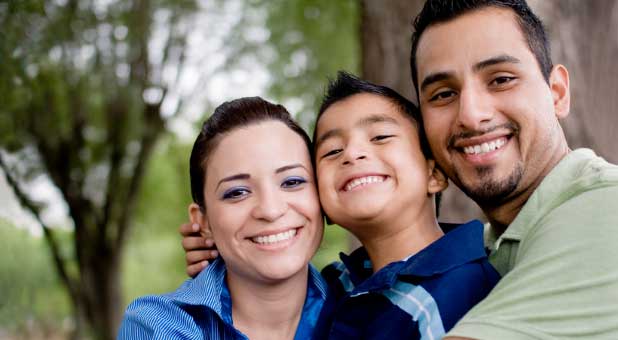The most important task for any parent is to help a child develop a strong faith and clear moral direction. But how do you do that when you have to get the clothes cleaned up and the dishes put away? Most parents find themselves to be very busy helping kids with homework, taxiing them around to various activities, and simply accomplishing life.
The key to making sure that what really matters remains in the schedule is to be intentional. If you plan spiritual training into your schedule it will happen. If you wait to see if there’s any time left, you’ll likely miss out. By making spiritual training a priority, you’ll see kids develop a stronger personal faith and it will affect so many things in their lives.
Attitudes about self, others and life in general are all affected by spiritual training. It’s interesting that many parents are concerned with the attitudes their children demonstrate. Often a “me first” attitude, an “I don’t care attitude” or a “don’t interrupt me while I’m on my video game” attitude frustrate parents.
Kids need a steady stream of values training in order to develop healthy attitudes about life. Parents who take time to provide that input reap positive results. As you plan for spiritual development, remember 3 key components, Build Relationship, Share Scripture and Practice Faith. These components can put hands and feet to your plans.
Significant conversations with kids are a treasure for parents. Sometimes those happen spontaneously and other times they are planned. Working faith out in life is a key element of a child’s growth and development. But it’s hard to work it out if we don’t have some basic instruction about what God teaches.
When it comes to passing faith on to kids, it’s often best to focus in four basic areas. First, who God is, describing Jesus, the Holy Spirit and the Fatherhood of God. Second, kids need to understand who they are: a created being with a heart, a sin nature and the place where God chooses to live. Third, it’s important for children to understand God’s plan. He created the world, instituted a plan for salvation, and has a specific plan for each person including them. Fourth, kids need to understand that the Bible is our authority for life. It’s not about how you feel or even about what you think. The question is: “What does the Bible say about my life today?”
Good theology results in good practice and it starts on a simple level as children learn more about God and the Bible. Take time to read God’s Word yourself and help kids dig into the Scriptures themselves. Most effective discipleship takes place in the home.
For more information about developing a strong faith and clear conscience, consider ordering Motivate Your Child, A Christian Parent’s Guide to Raising Kids Who Do What They Need to Do Without Being Told by Dr Scott Turansky and Joanne Miller, RN, BSN.














































